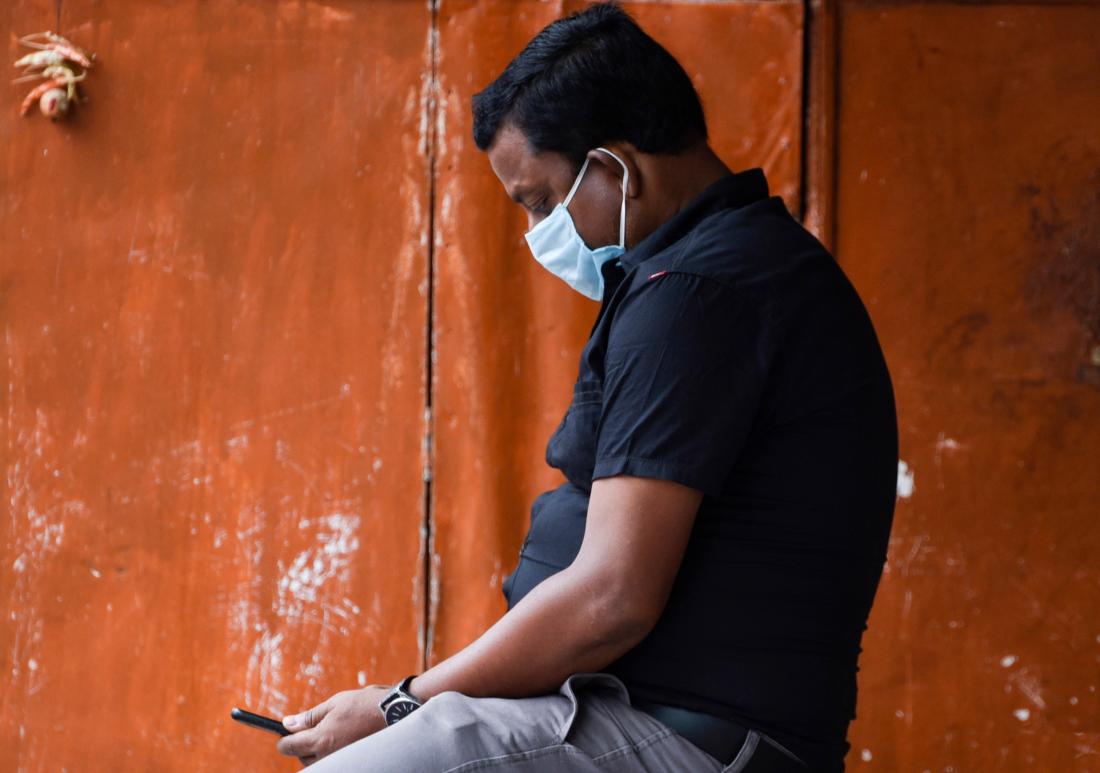Mitigating the Economic and Mental Health Impacts of Covid-19
- Urban population
- Adults
- Mental health
- Cash transfers
- Mental health
- COVID-19 response
The Covid-19 pandemic has affected health systems and economies across the world. Low-income communities have experienced particularly detrimental impacts, as a lack of financial stability further exacerbated augment the crisis. In partnership with the mental health care center SCARF, researchers are conducting a randomized evaluation among low-income adults in Tamil Nadu, India, to study the impact of cash transfers and psychological support on people’s mental health and ability to cope with the Covid-19 pandemic.
الموضوع الأساسي
The Covid-19 pandemic has caused devastating health impacts across the world. The pandemic and resulting economic crisis have hit low-income communities particularly hard as a lack of savings, income, and financial stability can further exacerbate communities’ ability to navigate the crisis successfully. The stress and anxiety associated with the pandemic, along with loneliness and social isolation due to social distancing, can cause severe mental distress.
Existing research shows that mental health interventions can improve economic outcomes, and likewise, economic interventions can benefit people’s mental health. Specifically, interventions like psychological first aid (a supportive, light-touch response method to assist people in difficult situations) and cash transfers can be promising ways to simultaneously relieve economic strain and improve mental health. However, there is little evidence on how to best address these challenges during a time of crisis, like the Covid-19 pandemic, or whether this support helps people to better retain health information and improve their ability to take preventive health actions. Can phone-based psychological first aid and temporary cash transfers boost mental health and resilience among low-income households? Do these interventions also improve people’s capacity to engage in preventive health behaviors in the face of Covid-19?
سياق التقييم
This evaluation takes place in India, where there is a large proportion of socially and economically vulnerable communities and a high burden of pre-existing mental illness. India also faces a large gap in mental health support: There are few trained mental health professionals relative to the population, and only about 10 percent of those requiring mental health support and treatment actually receive the treatment they need. These challenges have been exacerbated by the high Covid-19 case load across the country and intermittent lockdowns that have been in place since March 20201.
In Chennai, Schizophrenia Research Foundation (SCARF India), is a mental health care center that offers a multidisciplinary, comprehensive range of psychiatric care and rehabilitation services. As part of their services, they implement a psychological first aid program to assist people suffering from mental health burdens as a result of living in difficult situations (e.g., abusive relationships, isolation, economic hardship). The research team adapted the WHO’s psychological-first aid (PFA)2 guide to the study context, to allow for phone-based delivery of psycho-social support in a setting where in-person interactions were high risk. Mental health experts at SCARF collaborated on designing this adapted protocol. The SCARF team also helped train the lay mental health providers who would administer the PFA intervention.

معلومات تفصيلية عن التدخل
In partnership with SCARF India, researchers conducted a randomized evaluation to study the impact of cash transfers and psychological support on people’s mental health and ability to cope with the Covid-19 crisis. Researchers randomly assigned participants into one of three groups of approximately 800 people:
- Psychological support: Adults in this group were offered the psychological support program consisting of two stages: In the first stage, a non-specialist called every two weeks, up to three times in total to ask questions about the person’s concerns and thoughts, providing basic support in brainstorming solutions to problems and identifying people in particularly severe circumstances as a result of the pandemic, lockdown, and social isolation. These severe cases could include facing violence or abuse at home, thoughts about harming themselves or others, acute distress, or the inability to do day-to-day tasks due to stress, worry, or low energy. Severe cases were referred to the second stage of support, staffed by trained mental health professionals at SCARF.
- Cash transfers: Adults in the cash transfer group received a one-time unconditional cash transfer of INR 5,000 (US$65) at the beginning of the study. The cash transfers were delivered electronically and were worth approximately one week’s salary. This was designed to directly alleviate the economic strain caused by the shutdown.
- Comparison: Adults in the comparison group received information about how to seek mental health services in case they, their friends, or their family wanted to speak with a trained professional. They did not receive one-on-one calls with mental health support staff or a cash transfer.
Researchers measured the short-run and long-run mental health impacts of the program and any effects on participants’ levels or experience of depression, anxiety, loneliness, or stress. They also collected data on participants’ economic well-being, including food consumption and hunger, labor supply, earnings, and debt, as well as participants’ ability to absorb and retain relevant information about health behaviors to prevent the spread of Covid-19.
النتائج والدروس المستفادة بشأن السياسات
Research ongoing; results are forthcoming.